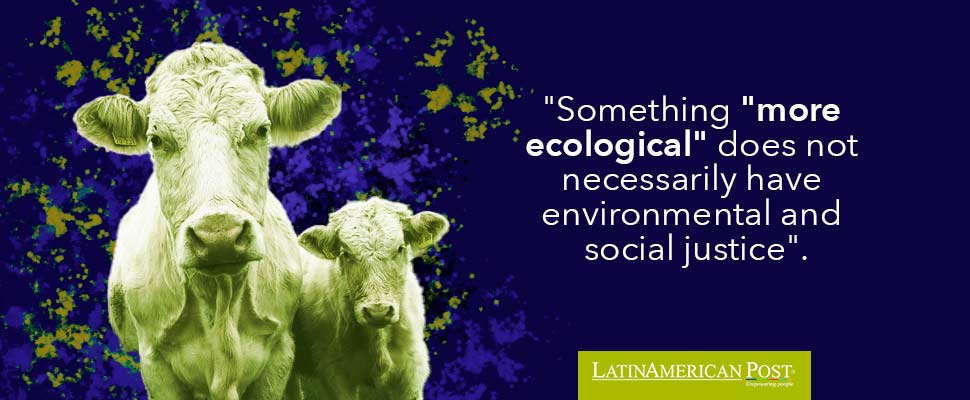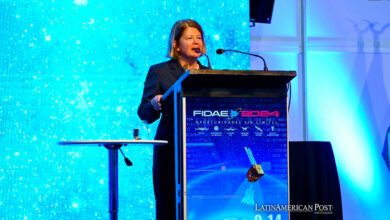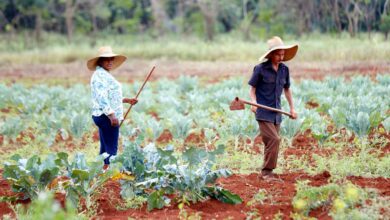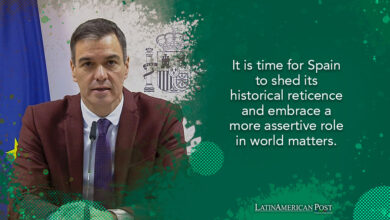Is Extensive Livestock Farming The New Solution Or A Bigger Problem?
Europe is adopting extensive livestock farming but Latam has shown that it is not environmentally sustainable

“Something “more ecological” does not necessarily have environmental and social justice”. Photo: LatinAmerican Post
LatinAmerican Post | Vanesa López Romero
A few weeks ago, the Spanish Minister, Alberto Garzón, criticized intensive farming in an article in The Guardian and defended the transition to extensive farming. He says that it is much more sustainable than industrial farming and, in that order of ideas, it has a lower impact on the environment and on the life of animals. This discussion is not new in Europe, countries like the Netherlands, for example, have already opted for this model, and others like Germany, Italy, France, among others, are seeing it as the most viable option. But how true is it that extensive livestock farming is functional and can help combat climate change? Is it really sustainable?
What is the difference between extensive and intensive farming?
In order to answer these questions, we must first establish the differences between extensive and intensive livestock farming. As its name suggests, intensive livestock farming consists of livestock farms at an industrialized level in which thousands of heads of cattle are kept in the same facility, with artificially created conditions. In that order of ideas, it is no secret that animals are exposed to very precarious conditions. In addition, livestock feed is produced from grain and cereal crops that have an environmental impact due to their massive production.
In the case of extensive livestock farming, it consists of allowing livestock to graze and partially or totally take advantage of a piece of land so that it can feed. In this way, the conditions of the animals seem to be better and it is seen as a more ecological alternative because they are feeding directly from the land and the environmental impact is reduced .
But the label given to extensive livestock farming could not be further from the truth, Latin America is an example of this.
Exploitation with sustainability mask
Although extensive cattle ranching sounds like something very beautiful because animals are thought to graze freely in nature, its environmental and social consequences are terrible. Let us take the Amazon as an example, a place that until recently a few years ago it was known as one of the largest and most environmentally important tropical forests in the world. Thanks to extensive cattle ranching, today the forest is increasingly closer to becoming a savannah.
Also read: What Would Happen If the Amazon Turns Into A Desert?
Hectares of forest are cut down every day, and deforestation grows as a result of these extractive activities that are recognized as legal . Latin America has 9 of the 24 deforestation fronts in the world. Cattle ranching is the main cause of deforestation in the region. And this deforestation also affects rural communities that are forcibly removed from their territories.
And here we have to stop, because deforestation is not only done so that cattle graze and have more space. It is also done to grow extra food that is given to the animals so that they grow faster and are well fed.
So, at least in that aspect, it is not different from intensive farming. Of course we can argue in favor of the extensive one that the mistreatment of animals is much less problematic, but what is the point of advocating for the dignity of living beings that are forced to live under these conditions when in both models they have the same end?
The discussion has also migrated to differentiating in the labeling of meats for sale if they come from intensive or extensive production, this in order that consumers become aware and opt for the product that has the least impact on the life of the animal and the environment.
Would that really work? Everything looks very sustainable if you see it in a simple label. Supposedly there is sustainable fishing, but, according to data from the Sea Shepherd Conservation Society, behind this supposed sustainability and care for the oceans and their species there are ineffective regulations that generate as much or more damage than illegal fishing.
The same would most likely happen if a more sustainable meat-eating mask were brought to market. The regulatory entities serve as a marketing strategy to reassure a few consumers, while in the scenarios where reality is lived, animals continue to be exposed to precarious conditions and cruelty.
Responsible food is impossible to achieve if the models under which it is established respond to an extractivist and exploitative system that does not take into account the lives of people or animals that are are affected by these practices.
Just because something is “greener” does not mean it has environmental or social justice.



